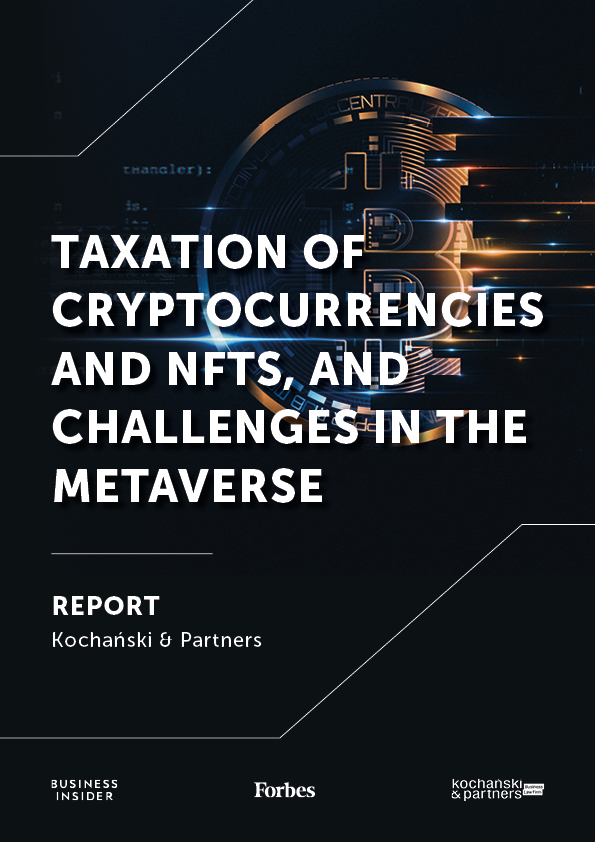“Every new technology, without exception, has a front cover of benefits and an equal reverse side of new, previously unknown risks.”
Stanisław Lem, Bomba megabitowa
“Every new technology, without exception, has a front cover of benefits and an equal reverse side of new, previously unknown risks.”
Stanisław Lem, Bomba megabitowa
Despite the highly dynamic development of technology in the area of crypto and NFT, Polish lawmakers are still at a very early stage of analysing the effects of transactions in virtual currencies.
The law is being outstripped by the pace of reality, but the tax administration are attempting to bridge this legislative gap.
In practice and in real cases of individual taxpayers, this means applying archaic regulations, which often leads to decisions that are completely unsuited to technological realities and, consequently, to numerous tax disputes. The result? Cryptocurrency entrepreneurs, NFT creators and entities entering the metaverse perceive the Polish tax system as being too complicated, opaque and, as such, uncompetitive.
Our goal in drafting the Tax Treatment of Cryptocurrencies and NFTs, and Challenges in the Metaverse Report, was to initiate a wide discussion on these subjects.
The report is a summary of the current state of affairs – outlining Polish legislation and the practice of tax authorities – but is also a comprehensive analysis of EU regulations and solutions applied in other jurisdictions, including those considered to be cryptocurrency tax havens.
We believe that solutions that work around the world may help the Polish legislators to better understand the technology and, consequently, encourage them to attempt to set a reasonable direction for the taxation of cryptocurrencies and NFTs.
The design of the Report is aligned with the development of the technology itself.
The Report begins with presenting key concepts and definitions from the world of crypto and tax, and analyses the legal environment and tax consequences of various events and transactions involving cryptocurrencies, NFTs and the Metaverse.
The largest section of the Report focuses on the cryptocurrency market, which is the most advanced, both in terms of technology and regulation. In this section, the Report examines not only solutions applied worldwide, but also EU regulations and, finally, Polish legislation and the practice of Polish tax authorities.
In the following sections, the Report discusses selected issues related to NFT market transactions and addresses the question of taxes to be paid by NFT creators. The final chapters explore the tax aspects associated with the development of the Metaverse.
The authors of the Report also present a number of legislative proposals for the development of tax treatment of cryptocurrencies and encourage market participants to begin discussions regarding this subject.
The Report was authored by Kochański & Partners Tax Practice lawyers: Agata Dziwisz-Moshe, Wojciech Śliż, Aleksandra Pizon-Jaworska, Mirosław Malczeski, Jakub Dittmer, Sławomir Wnuczek, Katarzyna Pustułka, and Wiktoria Tracichleb.
The report was released under the patronage of Forbes and Business Insider.
